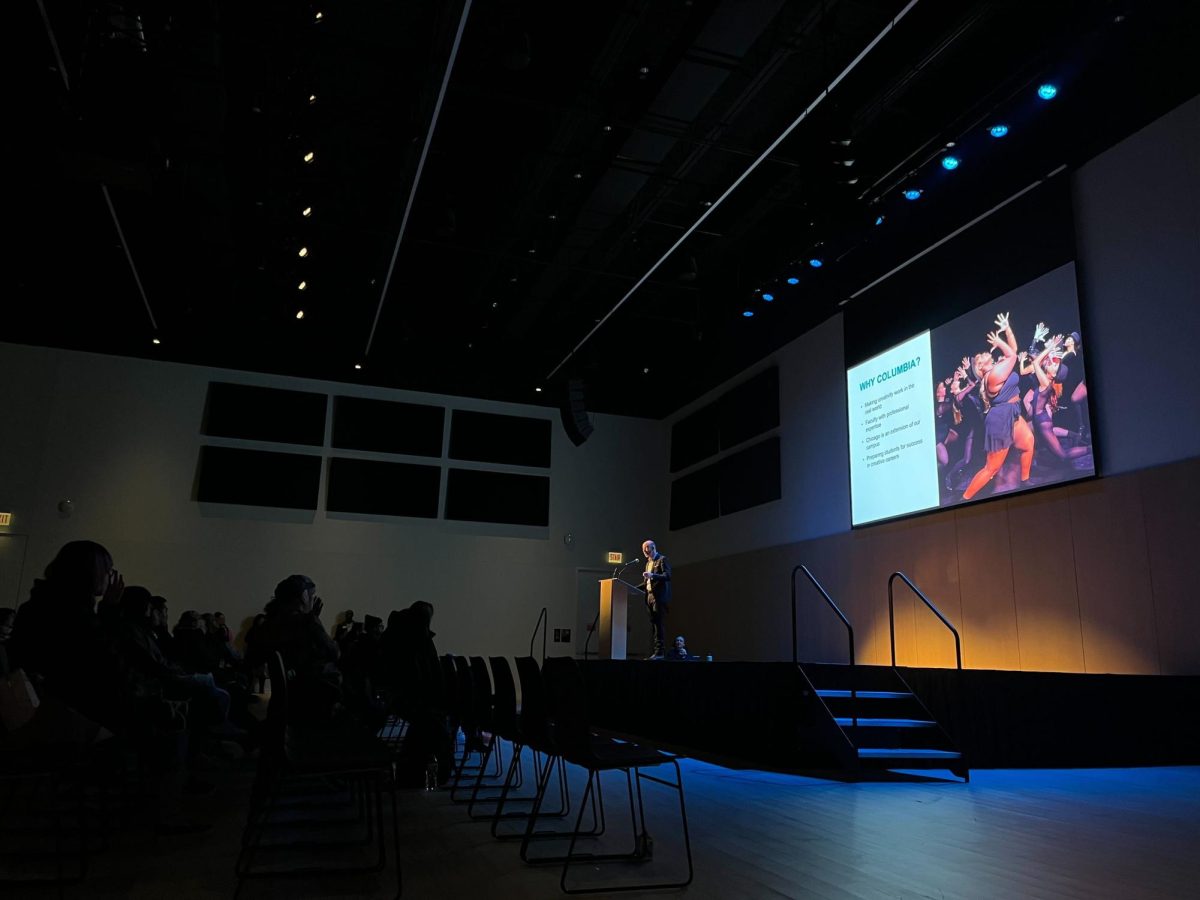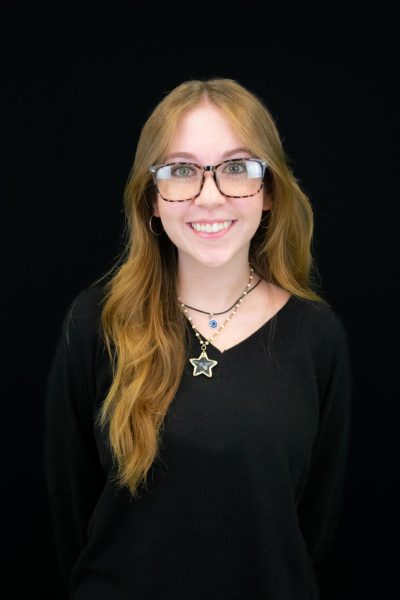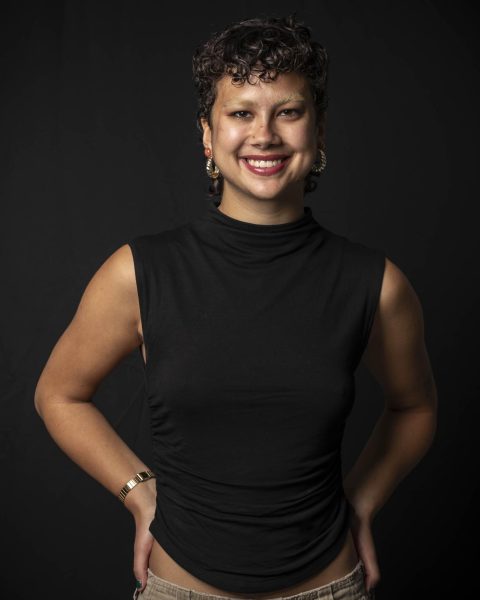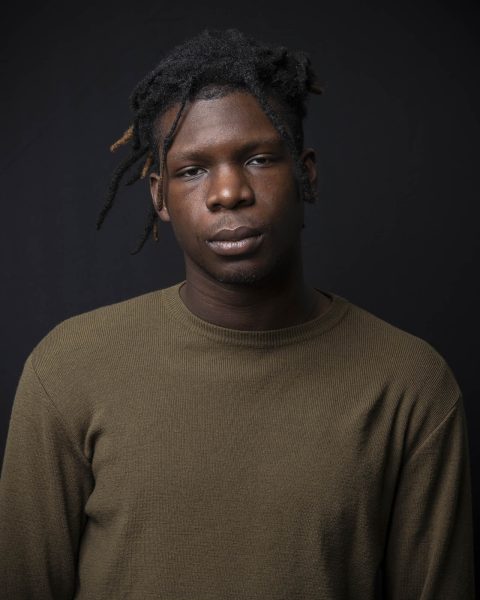Admitted students and their families crowded into the Student Center on Saturday, Feb. 24 for the first of a series of Admitted Student Days this spring, easing initial fears that the historic strike and financial crisis might keep people away.
Nearly 400 admitted students and parents attended, which was “more than expected,” according to student leader Manuela Álvarec, a senior musical theatre major.
This was the first of eight Admitted Student Days the college will host this spring. There were 175 students and 214 guests who registered, and it appeared that nearly all of them came. The Art | Design and Cinema and Television Arts departments, two of the college’s largest, had the most students.
During Admitted Student Day, the college offers tours to prospective students and their families and gives information about tuition, on-campus jobs, internships and course schedules.
Families were welcomed into the Student Center and led up to the fifth floor where they were met with name tags, tote bags and a spread of snacks and beverages. Student leaders and staff awaited to take groups to various buildings for guided tours of campus buildings and to answer questions about the different programs offered.
Students who attend the event would also automatically qualify for a waiver on your Enrollment and Housing Deposits.
This was the first Admitted Student Day since the seven-week historic strike last fall and since the college announced its deficit had grown to $38 million, prompting a restructuring and possible layoffs of tenured and tenure-track faculty.
The Board of Trustees has asked President and CEO Kwang-Wu Kim to prepare a report with recommendations. He is expected to deliver his initial report to the Faculty Senate on Feb. 28. Two days later, the Columbia Faculty Union and Faculty Senate planned town hall meetings on March 1.
In an email to members announcing the town hall, the part-time faculty union said the college is presenting Columbia as “an institution on the verge of disaster.” In the email, union President Diana Vallera accused the college of “fear-mongering.”
At Admitted Student Day, Senior Associate Provost Nathan Bakkum sought to reassure families about the future of the college. He briefly touched on the strike, describing it as a “good faith negotiation.” During the strike, the union repeatedly accused the college of not bargaining in good faith. It was the longest adjunct strike in US history.
Bakkum also talked about the financial deficit, telling families that “sustainability” is something the college values. He said the college was dealing with a “series of challenges related to how we serve students and deliver instruction” in the past five years.
Bakkum said the college plans to reduce the current deficit by about $19 million for the next fiscal year, as the Chronicle has previously reported.
The plan the board has asked Kim to develop outlines “a path to financial sustainability over the next two to three years,” he said.
“This process is underway right now,” Bakkum said. “It’s too early for me to speak to you about specific recommendations that will be delivered to the trustees later in the spring.”
The college has said enrollment could be down by 1,000 students this fall, which Kim has attributed, in part, to “reputational damage” from the strike. He has announced that he will step down on July 1.
For the most part, prospective students expressed excitement about attending Columbia in spite of the current situation, although some said they were nervous about the future of the college.
Verronika Rosa of Chicago plans to major in photography in the fall. They got into a lot of schools, but Columbia was their top choice, Rosa said.
The first time they visited campus was during the strike. “There were people protesting outside so it was something I decided to look into,” Rosa said. “It just kind of made me rethink a little bit if I was sure about going here.”
Rosa ultimately decided they did not want the strike to deter them.
After the welcome session, students were split up into groups to visit various academic departments to receive a deeper conversation on what their admitted major entailed. Later, lunch was provided and students were able to explore the college’s community.
Many of the admitted students said the location of the college drew them to apply.
“I think it’s a really interesting city and I was very impressed with just the school in general,” said Noah Cosman, an admitted student from Seattle who is interested in the college’s music program. His dad, who attended the event with him, said he didn’t have any concerns about Columbia specifically, but mentioned he was worried about the cost of college in general.
Tuition will increase by 5% for the 2024-2025 academic year. Full-time tuition will be $32,372 for undergraduate students next fall, an increase of $1,538 over this academic year. Most Columbia students receive a discounted rate, one of the issues the college is now trying to address because it is not bringing in enough revenue to cover the cost of education.
Juanita Bowden, an admitted journalism student from Chicago, said she wants to stay close to home. “I’m from here and I don’t want to leave,” she said. “I see they got the opportunities here.”
Griffin Elric Garrett, an admitted theatre design and technology student, said Columbia attracted him because students seemed very involved.
“I toured the campus and I said ‘This is it, there’s no other choice,’” Garrett said.











